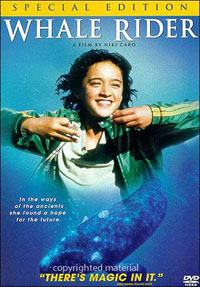New Zealand: Teen pregnancy linked to wealth
By Jarrod Booker
Updated: 2006-10-12 16:51
 Teenage girls from New Zealand's most deprived areas are almost 10 times more
likely to become pregnant than are those from the wealthiest areas, a Child
Health Summit has heard. Teenage girls from New Zealand's most deprived areas are almost 10 times more
likely to become pregnant than are those from the wealthiest areas, a Child
Health Summit has heard.
Figures compiled by University of Auckland
researcher Dr Liz Craig also show that for every teenager who gives birth in New
Zealand, another has an abortion.
Dr Craig compiled figures from district
health board areas and found the rate of teenage pregnancy fluctuated between
1980 and 2003, from as low as 50 for every 1000 girls aged 15-19 to almost 70
for every 1000 in 2003.
Teenage pregnancy is a hot topic again after news
that Oscar-nominated actress Keisha Castle-Hughes, 16, is pregnant. "It is 9.5
times higher ... in the most deprived areas," Dr Craig told the summit in
Christchurch yesterday. "It is an abrupt increase. It is a crucial issue because
the economic environment into which the children of teenage mums are born will
... influence the outcomes of that next generation.
"We have got to
really make sure we are resourcing teenage mums well so that the economic
position that they find themselves in is not made significantly worse by having
a baby ... and so that they can continue on with their
education."
National medical director for the Family Planning
Association, Christine Roke, said it seemed that teenagers with better career
prospects were less likely to become pregnant.
Those with fewer options
were more comfortable with a life of motherhood.
"In the United Kingdom
... there is a lot of effort going into making sure young mums can continue
their education and do get help with housing and so on. That is happening in New
Zealand to some extent, but it is much more patchy."
Dr Roke said
pregnant teenagers were now much more likely to consider abortion as an
option.
The summit also heard that the worst socioeconomic status was
linked to much higher rates of certain illnesses and hospital admissions in
young children.
But Professor David Fergusson, of the Christchurch School
of Medicine, argued that the early lives of children was about families'
lifestyle and behaviour rather than "how much money is in the
pockets".
|